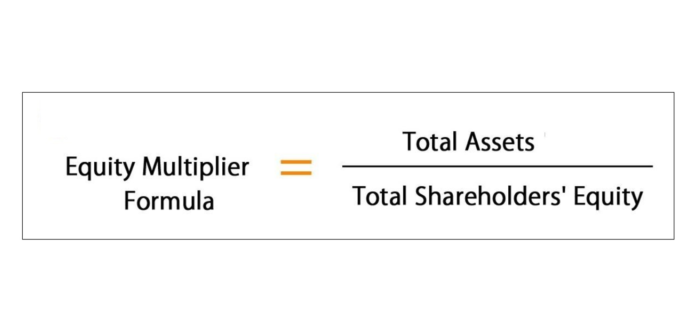
When this complementary transaction happens from an adult-to-adult state, it is thought to be the best type of communication, as it is respectful and reduces conflicts. Transactional analysis believes that adult-to-adult communication/ transactions lead to the most effective and healthy communication, thus, relationships with others. The three states of child, parent, and adult affect how we receive, perceive, and respond to information or communication from someone. The free child ego state can be creative, spontaneous, playful, and pleasure-seeking. Exploration of the various methods of training in Transactional Analysis Psychotherapy, including the benefits and drawbacks of a portfolio approach transaction analysis accounting and enrollment on an integrated training programme.

Transactional Analysis Therapy
This is when the ego states don’t match each other and can cause conflict in one way or another. This https://www.bookstime.com/ is where a person’s behaviour or statements say one thing, while surreptitiously or subconsciously meaning something else. You can think of this as the sender being in one state and the receiver being in the same state, complementing to the ego states instead of being challenged by it. These and many other questions can determine firstly how we respond to the transaction we are having, and secondly how we will be stimulated to carry on the transaction. The equal and therefore effective communication between Child-Child, Adult-Adult, Parent-Parent. The Child ego enjoys bragging, twisting the truth and making things seem worse than they are to impress others.
The AIP Model of EMDR
It is important to note that when analyzing transactions, one must look beyond what is being said. According to Dr. Berne, one must look at how the words are being delivered (accents on particular words, changes in tone, volume, etc.) as the non-verbal signs accompanying those words (body language, facial expressions, etc.). Transactional Analysts will pay attention to all of these cues when analyzing a transaction and identifying which ego states are involved. Many of the criticisms of the “science” (or lack thereof) behind psychotherapy was the fact that there was no basic unit for study, measurement, and classification.
Transactional Analysis in Therapy
- But either case is better than no stroke at all, if your neighbor ignored you completely.
- The nurturing Parent ego stands for power and authority, and is pedantic and know-it-ally.
- We tend to respond to communications and interactions based on earlier memories or emotional tendencies.
- As we mentioned ‘life-scripts’, it’s important to note that practitioners in TA try to strengthen people’s adult ego states, as our conditioning can affect our behaviours at both the child and parent levels.
- She is trained in EMDR therapy for treating trauma and employs a compassion and mindfulness-based approach consistently.
Transactional analysis (TA) is a widely recognized form of modern psychology. TA closely examines and interprets the interactions between individuals. It Accounting Periods and Methods focuses on the analysis of transactions between people, and aims to improve communication and relationships. In addition, transactional analysis theorizes individuals possess three primary ego states (parent, adult, and child).
Berne referred to this as “parent.” As Berne then turned to his other patients, he began to observe that these three ego states were present in all of them. As Berne gained confidence in this theory, he went on to introduce these in a 1957 paper – one year before he published his seminal paper introducing Transactional Analysis. When moving around as a stranger in unfamiliar surroundings, it is good to have helpful information for orientation. Depending on the situation, it seems reasonable to have different maps.
Markedly, the therapist’s role is to be supportive, non-judgmental, and actively engaged in the therapeutic process. For example, a common game titled “Why Don’t You, Yes But” involves one person (the Victim) presenting a problem, while others (the Rescuers) offer solutions. The Victim responds to each solution with “Yes, but…” and dismisses it, leading to frustration among the Rescuers. The payoff for the Victim is a confirmation of their belief that their problems are unsolvable, reinforcing their life script of helplessness. On the other hand, the critical parent aspect involves judgmental and controlling behavior.

This can then unconsciously cause us to replay the same attitudes and behaviors that our parents had towards us to someone else during a conversation or to respond to communication and interactions with past childhood anxieties and emotions. TA recognized that the human personality is made up of three “ego states,”; each of which is an entire system of thought, feeling, and behavior from which we interact with each other. The Parent, Adult, and Child ego states and the interaction between them form the foundation of transactional analysis theory. It’s considered that our childhood experiences have a big effect on how we live the rest of our lives and Berne’s work shows how the interactions between our ‘states’ can drive our overall life experiences with ourselves and others. Those younger experiences can have an unconscious effect on the way we think and behave. Eric Berne developed TA after his training in psychoanalysis, and although he built upon Freud’s ideas, he adapted them to focus on observable behavior rather than Freud’s theoretical constructs.

TA Talks from IESA
This state is more open, more rational, and less quick to make harsh judgments on a situation or person. Since Berne created TA, other psychotherapists and psychologists, such as Thomas Harris and Claude Steiner, have added to it, developing the theory and its therapeutic applications further. Saul McLeod, PhD., is a qualified psychology teacher with over 18 years of experience in further and higher education. He has been published in peer-reviewed journals, including the Journal of Clinical Psychology. Heather Murray has been serving as a Therapist within the NHS for 20 years.
- These concepts and theories complement the core principles of TA, providing a holistic approach to understanding and improving human behavior, communication, and relationships.
- Replacing violent organizational or societal scripting with cooperative non-violent behavior is the aim of other applications of transactional analysis.
- The interactions within the Drama Triangle are transactional and often lead to negative outcomes, as they reinforce each individual’s life script and confirm their negative beliefs about themselves and others.
- The therapist analyses your past and how it affects the here and now, which is why it is known as an Active Directive form of therapy.
- Eric Berne proposed that dysfunctional behavior is the result of self-limiting decisions made in childhood in the interest of survival.
- When communication occurs in the adult state, we are more likely to be respectful, make compromises, listen fully to others, and have more healthy social interactions.
These three components or aspects were the Id, Ego, and the Superego. It was Freud’s belief that these three components needed to be well-balanced to produce reasonable mental health and stability in an individual. According to Freud, the Id functions in the irrational and emotional part of the mind, the Ego functions as the rational part of the mind, and the Superego can be thought of as the moral part of the mind, a manifestation of societal or parental values. By the 1970s, because of TA’s non-technical and non-threatening jargon and model of the human psyche, many of its terms and concepts were adopted by eclectic therapists as part of their individual approaches to psychotherapy.
